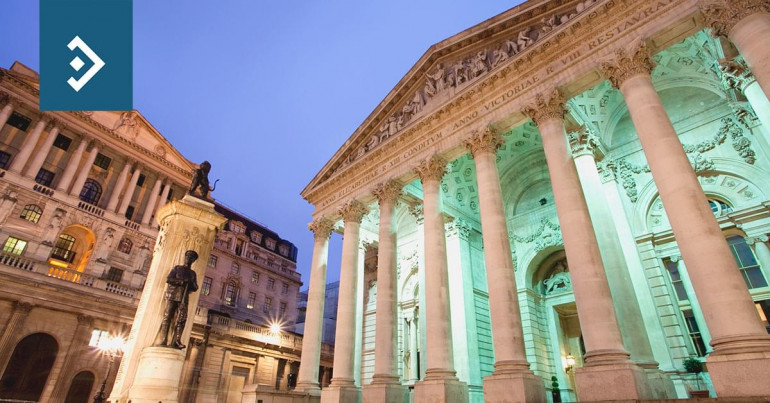
Kwarteng to deliver spending plans
Morning mid-market rates – The majors
16th September: Highlights
- Government announces its budget on 23rd September
- Mortgage rates spell trouble for the housing market
- Weak euro means higher trade deficit
GBP – Chancellor criticized for scrapping cap on bonuses
This will be something of a baptism of fire for the new Chancellor, who has been rewarded for his unstinting support of new Prime Minister Liz Truss by being promoted into one of the top three jobs in the Cabinet.
It is understood that the dual focus of the Budget will be on energy and tax cuts.
He has also been in the news in the past twenty-four hours as it is rumoured that he is considering removing the cap on bankers’ bonuses which was introduced as part of a post-Brexit shake up in governance of the City of London.
Several banks have relocated to the mainland, and this is designed to lure them back. It won’t be universally popular, since a number of banks are said to be considering cutting overall staff numbers to cut costs.
The proposals have been labelled as obscene by the Trades Union Conference, who believe that banks should be subject to a windfall tax to fund the NHS.
Meanwhile, there have been warnings issued by the World Bank, the IMF and OECD who are all admitting to concerns about the pace at which banks in the developed world are hiking interest rates.
They each believe that the severe tightening of monetary policy could tip the global economy into a devastating recession.
The Bank of England’s delayed Monetary Policy Committee will be held next week following the Queen’s funeral, which will take place on Monday. It is certain that rates will be raised again although the markets are unclear if it will be by fifty of seventy-five basis points.
The Central bank has appeared reticent to joining the ECB and Federal Reserve in going for what markets have called a super hike of seventy-five points.
Sterling rose to a high of 1.1460 and closed at 1.1458 as the market awaited clarity from the Bank of England and prepared for a three-day weekend
Recommend our services and earn up to £75 per successful referral
USD – Agreement may be found to avert rail strike
On a day for good news for the economy, a tentative agreement was reached to avert the proposed strike by railway workers. After twenty hours of talks, an agreement was reached that will be put to a ballot following a cooling-off period.
The announcement by President Biden has greeted with a collective sigh of relief by the markets, which had been fearing that this would be the act which pushed the economy into recession.
Data for jobless claims was also released yesterday. They showed that 123k new claims for benefit were filed in the latest week, a further improvement from the previous week, when 218k new claims were reported. The four-week average, which is reportedly closely watched by the FOMC, fell again to 224k.
Over the past several months, this data has remained in a 200k to 250k range.
The Fed may have expected that inflation would peak in the summer months, but data released recently shows that prices are still rising and may be becoming ingrained in the economy.
Not only is this unwelcome news for the U.S. but the continued rise in interest rates by the FOMC provides less incentive for investors to try to look further afield for value on their investments. The knock-on effect of this in the long term is that the rest of the world is starved of capital. With China also struggling with internal investment, the world’s two largest economies have become internal looking.
Bank of America produces a monthly survey of global investment by U.S. investors and banks, and it shows that investment in global equities shows the biggest underweight position in history. This may be the start of the reversal of globalisation, with investment flows being totally reversed. This will also serve to keep the dollar strong in the longer term.
Yesterday, the dollar index found the going tough in trying to break the 110 barriers. It attracted sellers around the 109.80 level and closed just shy of that level at 109.73.
EUR – ECB members calling for determined action
Energy is still the single most critical issue facing the region. It is both scarce and expensive. There is little that can be done in the short term to rectify the situation.
Faced with a choice between supplying gas to heat the homes of its population as winter arrives and powering its factories, the authorities will choose the former, which will lead to power outages, pushing the economy deeper into recession.
The ECB has decided at the most inopportune time to consider its mandate to try to keep inflation under control. This has seen it hike interest rates twice already by a total of one hundred and twenty-five basis points, and it is expected to hike again, possibly by a further seventy-five basis point at its next meeting.
This has been welcomed by members of the frugal five, but even nations like Ireland have welcomed the move.
Its Central bank Governor, Gabriel Makhlouf, commented yesterday that it was vital that the central bank continued to tighten monetary policy. He went on to say that inflation was destabilising the macroeconomic economy and issues will only be exacerbated if we delay. any further.
Factories across the eurozone are suffering their largest fall in output since before the Pandemic and are being hit badly by rising energy costs. Order books are at their lowest level since 2008.
Over the past three months, output has gone from +2.4% in June to -2.4% currently. Banks are beginning to see accounts turning into delinquency which will most probably lead to an increase in bad loan provisions,
The eurozone is beginning to see the effects of a traditional recession, even though its roots have been far from usual. Demand is still moderate, and prices have been driven by supply.
The euro is driven by what the market sees as the possibility of less divergence in monetary policy between the eurozone and U.S. This is supporting the single currency, although it is still finding sellers around parity.
Yesterday, it reached a high of 1.0000 and closed at that level.
Alan Hill
Alan has been involved in the FX market for more than 25 years and brings a wealth of experience to his content. His knowledge has been gained while trading through some of the most volatile periods of recent history. His commentary relies on an understanding of past events and how they will affect future market performance.



